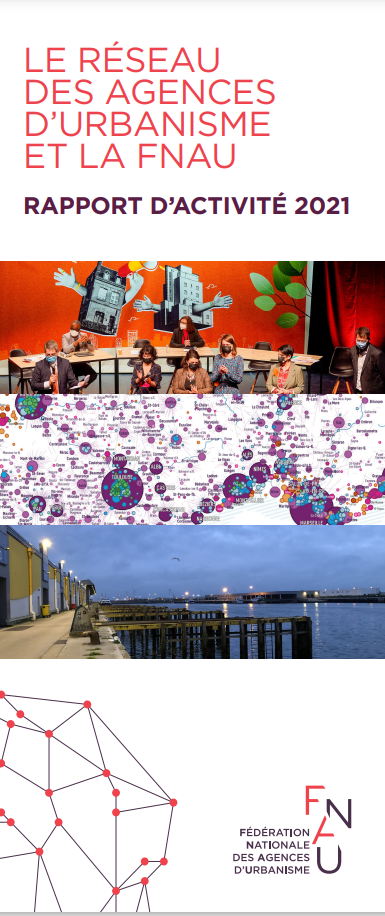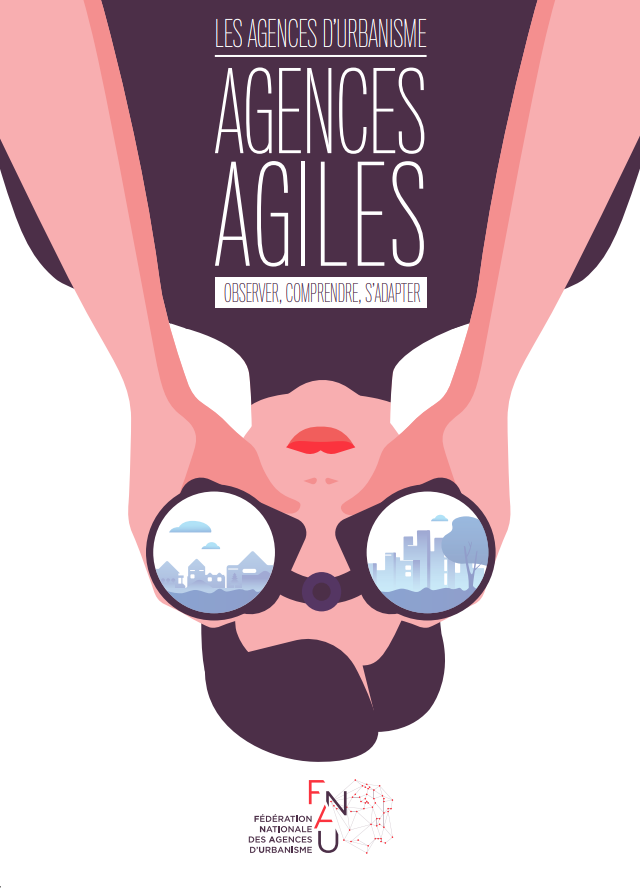The reasons of an international action
Even through the issue is being raised in differerent ways around the world, urban explosion during the last decades is a worldwide issue which needs a coordonated response. Therefore, the urban planning agencues are willing to join and commit themselves in international cooperation projects, and to take part to international debates. Fostering the expertise of French agencies in terms of observation, planning, decentralization, medium-sized city planning, public contracting authorities and politics (etc.) is an integral part of the mission of the FNAU and contributes to its influence.

Climate Chance African Summit 2021 – Urban Thinkers Campus “Planning African metropolises for climate resilience”
More details
The FNAU at the World Urban Forum 10 “Cities of opportunities: connecting culture and innovation”
More details

Climate Chance African Summit 2021 – Urban Thinkers Campus “Planning African metropolises for climate resilience”
More detailsThe FNAU at the World Urban Forum 10 “Cities of opportunities: connecting culture and innovation”
More detailsThe role of urban planning agencies abroad
In this global movement of reflection and action about modes of governance and of a sustainable urban development, urban planning agencies act as part of two international frames, generating interventions in more than 60 cities worldwide for the last 15 years.
The first frame is the one of decentralized cooperation which meets a new momentum since the law of February 6th, 1992 in France. This law defines decentralized cooperation the following way : « there is a decentralized cooperation when a French town (or more) develop relations with another (or many) foreing town(s) : these relations can be friendship or sister city ones, actions of promotion abroad, support to town development, technical assistance, humanitarian action, shared management of goods and services, but also cross-border or inter-regions cooperations » (National commission for decentralized cooperation, 2000). Thus, decentralized cooperation can be described as a « shared story » between two local authorities, but also between individuals, elected representatives or technicians. The size of the town is not an impediment, as illustrated by the experience of the agencies of Saint-Omer in Africa or of Oise-La-Vallée in Lebanon.
The second frame of intervention is the response to international call for tenders launched by funders for which agencies reply alone or in consortium with other French entities (engineering or service groups). These cooperations show all the importance of networking between urban engineering entities at the international level.
Concurrently with these two frames of intervention, some agencies are also part of thematic international networks of cities, like Marseille and Dunkirk, active in the worldwide network of port cities (AIVP).
Urban planning agencies are demanded on various themes internationally : support to urban planning agencies, project ownership assistance, creation of partnership-based urban agencies, urban strategy, urban and regional planning, urban projects, urban transportation, urban quality, heritage and culture, GIS and cartographic tools, infrastructure development, planning documents, capability enhancement, managers training. Conventional domains (waste, water, roads, etc) remain the most frequent ones in many operations lead in the developing countries. The urban planning agency as a specific engineering tool improves with this experience beyond the walls, especially regarding urban sustainable development. Urban planning agencies speak in favour of partnerships, co-production, long-lasting proccesses and multidisciplinarity.
For international actions, urban planning agencies defend the same values with the will of an action adapted to the singularities of the local context to support project construction and actors co-production with local authorities.
For example:
- Paris – unified development plans for the cities of Rabat and Salé
- Lyon – Support project to Ouagadougou mobility
- Marseille – an atlas of port cities

The Fnau as the technical secretary of the PFVT
Since its creation in 2011, the Fnau has been deeply involved in the PFVT, the French Partnership for Cities and Territories.
The PFVT is the platform of exchange and promotion of French experts in urban development. It is a multi-stakeholders partnership. Nowadays, it gathers almost two hundred members whom represent the diversity of French urban expertise: State and public institutions, local authorities, professionals, businesses, research and training organizations, non-governmental organizations. It is currently chaired by the Deputy Hubert Julien-Laferrière with the support of the French Ministries of Europe and Foreign Affairs, Territorial Cohesion and Relations with Local Authorities, Ecologic and Solidary Transition and Culture.
Since 2018, the Fnau renewed and reinforce its commitment for a worldwide sustainable and inclusive urban development, taking in charge the technical secretary of the PFVT.
Find out more about the PFVT and its actions on the website: http://www.pfvt.fr/en



